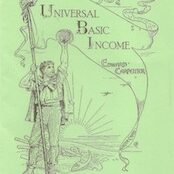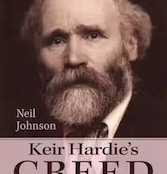GARY KENT reports on the diversity of opinions he found on a recent State Department-sponsored trip to USA.
The United States is not a uniform entity. Anyone who says, “America thinks this, that or the other” is just plain wrong. There is possibly more diversity of opinion in America than in Europe.
Bush made major electoral gains in the 2002 mid-term elections by putting his neck on the line with voters and because of the shambolic campaign run by the Democrats. But domestic support for his war on terrorism, though broad, is shallow and there is considerable unease bubbling beneath the surface. These are the central lessons I took from a three-week study tour on US foreign policy, organised under the aegis of the US State Department.
The tour took 14 European journalists from Washington to the (genetically modified and sprawling) cornfields of Iowa in the mid-west, on to the Pacific (Seattle or San Diego), back to the NATO Atlantic Command centre in Norfolk, Virginia, and finally to New York during election week. It was a whirlwind trip of background briefings from senior figures in various government, non-governmental and academic organisations.
Our first meeting lifted any fears that the tour would ram the party line down our throats. Dr Deibel, Professor of National Strategy at the National War College, said many feel that the real axis of evil is Dick Cheney, Donald Rumsfield and Paul Wolfowitz, President Bush’s key advisers. It’s often said that Bush’s genius is in his selection of advisers but the evil triumvirate is not now in the ascendancy, thanks to Secretary of State Colin Powell and, as is very widely acknowledged in official circles, Tony Blair.
Americans come in four types: Davos Man, the corporate executive who might attend the annual Davos World Economic Summit; Berkeley Man, the liberal and cosmopolitan intellectual elite; McDonalds Man (Homer Simpson); and Oklahoma Man, from the bible belt. Davos and Berkeley men are more predisposed to meeting inquisitive foreigners than the other two. Liberals in our group consequently became desperate to meet anyone who would defend and promote the Bush line.
I went to the Republican victory party at the Hilton in New York to find them. The first person I randomly selected told me that America was dominated by corporations – “for the money, by the money, with the money”. The second also slammed “Dubya” while Bush supporters gave inconsistent reasons for backing Bush on the war.
There was certainly much confusion about Bush. A former pilot who knew Bush from the days when he evaded Vietnam service for a safe role in the National Guard mentioned his months of hard drinking with the future President and opined that Bush was smuggling a highly conservative republican agenda past the American people. A Reaganite told me that Reagan had said the “darndest things” but was moderate in practice, while figures like Cheney are moderate in tone yet believe the craziest things.
Bush is genuinely more fundamentalist than people realise. We were told of a spirited debate between Bush and his mother over Dubya’s assertion that all non-Christians are destined to go to hell, not in this lifetime but the next one. The dispute was only “resolved” by him summoning his own personal minister, Billy Graham, who confirmed this particular Bush doctrine.
Plain-speaking man
However, the image of a Texan hick in hock to big oil doesn’t quite accord with reality. He is seen as a plain-speaking man who is a cunning “pol” (politician), one able to sense the American mood. Bush has, after all, pulled off an historic feat in securing dominance over the Senate, the House of Representatives and the White House.
He trounced the Democrats in what an academic described as a triumph of tactics over vision. This is too kind to the anaemic campaign run by the Democrats, who face a savage debate about their future. They are understandably bitter about being robbed of victory in 2000 but were stymied by the khaki background to the election campaign. The Democrats often disagreed with the unilateralist and aggressive tone, if not always the content, of Bush’s policies.
Their biggest nightmare was that the hard-liners would prove to be correct on the threat to America, and they would hence pay an enormous price for being soft on Saddam and terrorism. One of their candidates, a Vietnam veteran who had lost three limbs in the war, was accused of lack of patriotism by a “whippersnapper chickenhawk”, who won the race.
We were reminded that the ethos of the Harvard MBA programme, which Bush attended, is “hyper-aggression”. If this theory is correct, then maybe Bush has secured a massive victory in cajoling the UN Security Council, even including Syria, into a tough resolution on disarming Iraq.
The President’s landmark National Security Strategy was regularly analysed. This is the theoretical basis for a policy of pre-emption, a sharp departure from the Cold War strategy of containment and deterrence. People often contrasted Papa Bush with his son. Bush 41 responded to Saddam’s invasion of Kuwait by seeking a UN mandate before securing one from Congress. Bush 43 did it the other way round.
Europeans often think Dubya is seeking revenge for his father, who was nearly assassinated by Saddam and who decided not to finish off Saddam after the first Gulf War. But there is a fundamental philosophical divide between the two Bush presidencies. Papa Bush comes from the tradition of “Eisenhower Republicans” who fashioned the post-war multilateral world order, having defeated Republicans allied to Senator Taft, who opposed institutions such as Nato in favour of unilateral action.
However, we were also told that pre-emption and regime change were always in the American arsenal, the National Security Strategy merely codified them, and that it was wiser to look at what Bush did rather than what he said. After all, who could have predicted that Bush would have spent two months negotiating a UN Security Council resolution?
Some speakers thought that the Bush administration was making things up as they went along, having been forced into international engagement by 9/11. Bush had, after all, spent the first eight months of his presidency gratuitously offending his allies by tearing up agreements such as the Anti-Missile and Kyoto treaties, and refusing to endorse the international criminal court.
Many Americans have a deeply ingrained fear of “foreign entanglements”. The image of body-bags from Vietnam hangs over all debates. People are accustomed to the idea of taking on opponents who can be compared to Hitler, defeating them within days with few casualties, and then leaving the Europeans to pick up the pieces. This was regularly described as America doing the cooking and Europe doing the dishes. But American policy-makers resent European countries for their lower defence capabilities, making them “free-riders” in US eyes.
The US military and the intelligence community are unhappy with the simplistic scenarios presented about Saddam. A former Reagan aide told us that “amateurs talk strategy, professionals talk logistics”. The intelligence people realise that America needs allies in the pursuit of Al Qaeda. German-American security cooperation has suffered because of the spat between Chancellor Schroeder and President Bush. The Europeans have nabbed more terrorist suspects than America, although we heard that those held in Guantanamo Bay in Cuba were providing serious information.
Support for military action against Saddam evaporates when people imagine America doing it alone, in the face of opposition from European and Arab allies. It’s also expected that the US could take 1,000 casualties although there are widely varying views on how long the US would have to stay. One source from the administration argued that once US blood and treasure had been expended, the US would stay as long as it took, but many Americans don’t appreciate just how long this could be, or how much it could cost. We were told by a senior Republican that “nation-building is a four-letter word” in the US.
On the other hand, people recognise that quick-fix military action does not tackle political and economic grievances. What’s more, the war could allow Iraq’s vast oil reserves to be developed and trading to start with USA.
Growing rift
Many discussions focused on the growing rift between USA and Europe. We differ in our models of social welfare and attitudes to the death penalty, as well as in environmental policies. Most Europeans do not see Saddam as a clear and present danger while, officially, America does.
In Washington DC and New York, the Pentagon and the World Trade Centre are constant reminders of America’s vulnerability. But Washington is often described as “a city surrounded on all sides by reality” and beyond the Beltway war is something far away. We were told that 99.5 per cent of the American people don’t see Saddam as a threat, even if most have a deep respect for the institution of the presidency and often give it the benefit of the doubt.
Yet USA is on a war footing. For the first time, it has its own military command and is building an internal intelligence agency – the Department of Homeland Security. The threat of terrorism hangs over every airport. The days when it used to be free and easy to travel around the US are gone. As foreigners using one-way tickets we always had extra checks. The sign at Norfolk airport was clear: “no mace, no guns, no jokes”.
The US is spending a vast fortune on such checks. The Department of Homeland Security will have a $40 billion budget and one private think-tank, Anser, warns that the biggest problem is uncontrolled expenditure. Nevertheless, Al Qaeda has probably worked out that buying a return ticket would bypass much security.
Despite hearing so many different viewpoints, one thing seems certain – when Bush comes to shove, Saddam will not be leading Iraq by the time of the next US presidential elections in 2004. Whether that weakens or boosts terrorism, and whether it deepens or strengthens the transatlantic relationship, are open questions.



21 October 2010
[…] the world as we know it Ben Turley reports from Halifax on the BNP’s recent by-election victory. Beneath American skies Gary Kent reports on the diversity of opinions he found on a recent trip to the USA. A Hill of […]